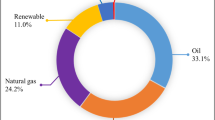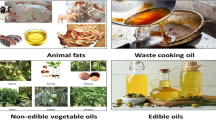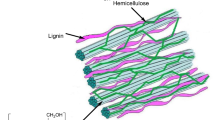The enzymatic synthesis of aromatic polyesters by direct polyesterification between a diacid and a diol is described. The effects of the type of substrate, type and quantities of lipase, temperature, vacuum, and reaction time on the synthesis of aromatic polyesters were studied in detail. Among three lipases investigated, only Novozym 435 worked well for aromatic polyester synthesis. Temperature and vacuum played an important role in obtaining a high molar mass of the aromatic polyesters. Furthermore, with isophthalic acid and 1,6-hexanediol as substrates, the mass average molar mass of the polyester obtained increased with an increase in the lipase quantity up to 0.375 g (11.7%, w/w of total reactor contents). The mass average molar mass of the polyester was as high as 50000 g mol−1 in 168 h, with a polydispersity of PD ≈ 1.4.
Similar content being viewed by others
Author information
Authors and Affiliations
Additional information
Received 27 January 1998/ Accepted in revised form 19 May 1998
Rights and permissions
About this article
Cite this article
Wu, X., Linko, YY., Seppälä, J. et al. Lipase-catalyzed synthesis of aromatic polyesters. J Ind Microbiol Biotech 20, 328–332 (1998). https://doi.org/10.1038/sj.jim.2900533
Issue Date:
DOI: https://doi.org/10.1038/sj.jim.2900533




